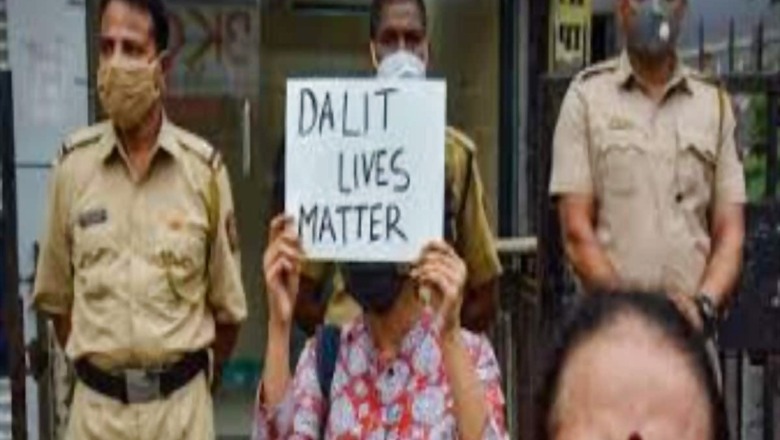
views
To decrease the chance of discrimination, the caste surnames or details giving out religious or social background of candidates should not be revealed at the interview stage of civil services and other state or central examinations, a government-commissioned draft report has recommended.
The report states that chances of discrimination are high at the stage of personality test/interview in civil services and other services both at the centre and state levels, thePrint reported.
The Ministry of Social Justice and Empowerment commissioned the report on the progress of Scheduled Castes in seven decades. The Dalit Indian Chamber of Commerce and Industry prepared and submitted the report to the government earlier this month.
The report recommends reservation in the private sector to give job security on par with the advanced sections of the society.
Just like candidates are prohibited from writing their names and other personal details, including religious symbols on their answer books, the practice should also be carried out during the interview stage of all recruitment process, the report says.
The report said the practice is good from all angles, as it prevents any socio-religious bias in evaluation of answer books. “This practice should be extended to the interview/personality tests also in all the recruitments small or big, UPSC or SPSCs or through other recruitment boards,” the report said, adding that the Union Public Service Commission takes the details of “religion and broad social category of the candidates, who fill their applications for various services/posts”.
“In the absence of such direct information, social background of candidates is guessed to a great extent from the names like the Nayer, lyer, Iyengar, Naidu, Menon, Bandhopadhyaya, Chathurvedi, Gupta, Patel, Panda, etc,” it argued.
According to the report, the policies were designed in the 1970s and needed to be aligned with new economic reforms. It also pitched for a strong vigilance system to prevent misuse of funds allocated through special component plan and tribal sub-plan.
The report also showed that there was no creamy layer among SCs. The total Scheduled Caste “Group A” and “Group B” employment in the public sector is about 3,38,606.
“Their political representation in the legislatures is about a thousand individuals. This is the creamy layer of Scheduled Castes. In the 200 million-plus population, this is an insignificant number,” it stated.
It added that the creamy layer concept was a economic aspect “incongruently built in the social problem”.
“The real problem with reservations in the services is preserving and straightening its representative character, but not to see it as a direct solution to unemployment and eradication,” the report said.
Read all the Latest News, Breaking News and Coronavirus News here













Comments
0 comment